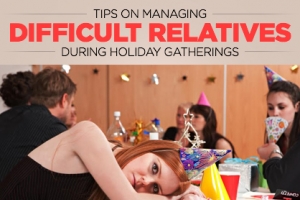Glaucoma can sneak up on you
It is known as the sneak thief of sight for its ability to creep up on you. The second leading cause of blindness, glaucoma affects 2.3 million Americans over the age of 40. Yet most do not know they have it. Are you being screened? January is National Glaucoma Awareness Month, and now is the perfect time to do so.
Glaucoma is a disease of the optic nerve that affects an individual’s side vision. In the beginning stages, the disorder has no apparent symptoms. Often by the time the person is aware of the signs, it can be too late and permanent damage could have occurred, including visual field loss and ultimately sight loss.
“People are less likely to see those changes until it is very advanced and until it is like tunnel vision,” Mildred Olivier, MD FACS , Prevent Blindness America board member, CEO Midwest Glaucoma Center, said. “And then they realize something is wrong, and they think it is cataracts or maybe they think it is something else and then they find out it is glaucoma. And once you have damage, it is irreversible. It’s always about trying to catch it early and treat it so you can do the things you want to do.”
Knowing the risk factors is key. Risk factors range from family history to being nearsighted, asthma, arthritis, diabetes, high blood pressure and trauma to the eye. Although it is seen in babies to teens, older adults are more likely to develop glaucoma, as are blacks. The racial difference is dramatic enough that blacks should be screened when they hit their forties, while Caucasians can wait until they are in their fifties or sixties.
“It’s totally preventable,” Olivier said. “You can go in early, get diagnosed, start treatment and hopefully you never have to be blind from glaucoma … It’s kind of like going to the dentist. You go to the doctor once a year and get checked up.”
The real issue behind glaucoma is it causes blindness. Patients can lose their ability to drive and their ability to live independently. Olivier recently saw a 48-year-old man with glaucoma in one eye and the other one not far away. With his tunnel vision, he is unable to drive a car because his vision has a huge blind spot and cannot go into work.
While the elderly are more likely to contract it, people of any age should be cautious.
“Glaucoma has a spectrum of life cycles. It can happen at a variety of ages for a variety of different reasons … Sometimes I have somebody come into my office and they say ‘I’m too young to have glaucoma.’ And I said not really, especially if there is a really strong family history,” Olivier explained.
Even if you have no vision problems, it is important to get regular, comprehensive eye exams. And it is critical not to just get an exam, but to make sure you are getting the right kind of exam. Your doctor or optometrist should check your vision, check the eye pressure and dilate the eyes with drops to examine your optic nerve directly. This test is important even if you have no vision problems.
“When we look at optic nerve, then we can say how healthy it is,” Olivier maintained. “If it is very healthy, it can sustain higher pressure. If it is very unhealthy, even low pressure might seem a problem. So whatever eye professional one sees, they have to make sure that that exam includes a dilated eye exam because the doctor has to see that optic nerve. And a patient should know to say ‘How does my optic nerve look?’ And then they will know (if the exam was adequate).”
The public should also be aware of the difference between professionals. Ophthalmologists are physicians who have gone to medical school, while optometrists are doctors of optometry and opticians fits glasses based on a prescription from the first two.
For those who fail to be screened in time, a variety of treatments can offer hope. Options include eye drops, laser surgery and glaucoma surgery, where a patient must undergo a knife in an operating room. A hole in the eye is formed and medication is inserted.
“The tragedy is it is completely preventable and people don’t go in and they don’t get seen,” Olivier said. “You have somebody at 30, 40 that is blind. That’s a waste of a patient who could have probably gone much further in life and may be disabled and not able to get around and see well.”
Prevent Blindness America celebrates Glaucoma Awareness Month by reminding people of the dangers of glaucoma and the importance of screening. For more than 100 years, the organization has taken grassroots action, venturing out into communities to root out the uninformed, those who do not see an eye doctor, and those with high risk factors.
“When they can get those people, check their vision, get their risk factors and then get them to see an eye doctor, that can really help save a person’s eyesight who might not even know they have glaucoma,” Olivier declared.
Programs cover the spectrum of eye problems, from children’s vision screening to injuries and proper eye protection for those who work in certain environments. Interested individuals can dial the organization’s 1-800 number or visit its website to ask questions of experts.
One 14-year-old’s experience almost came down to pure luck that his eye doctor dilated his eyes, as many eye professionals do not perform the test on younger patients, especially those who do not have family history. The doctor instantly realized the problem and treated the teen with surgery. Today he is in good health, married and expecting his first child and speaking out about the need to get screened. Glaucoma has not stopped him from living the life he should. If he had not been dilated at a young age and had waited, he almost certainly would be blind today.
“Glaucoma is something you can really impact. By doing this surgery on this guy, he is not going to go blind in the future,” Olivier said. “And that is so huge. If I can interact at any point in educating people about the risks factors of glaucoma and the causes of glaucoma and that there’s treatment, it is just a domino effect to save so many people’s eyesight in the long run.”
For more information, visit www.preventblindness.org.
Tagged in: lux exclusives, charity, nonprofit, philanthropy, eyes, glaucoma, prevent blindess america, eye, blindness,

LadyLUX via istock, Prevent Blindness America



